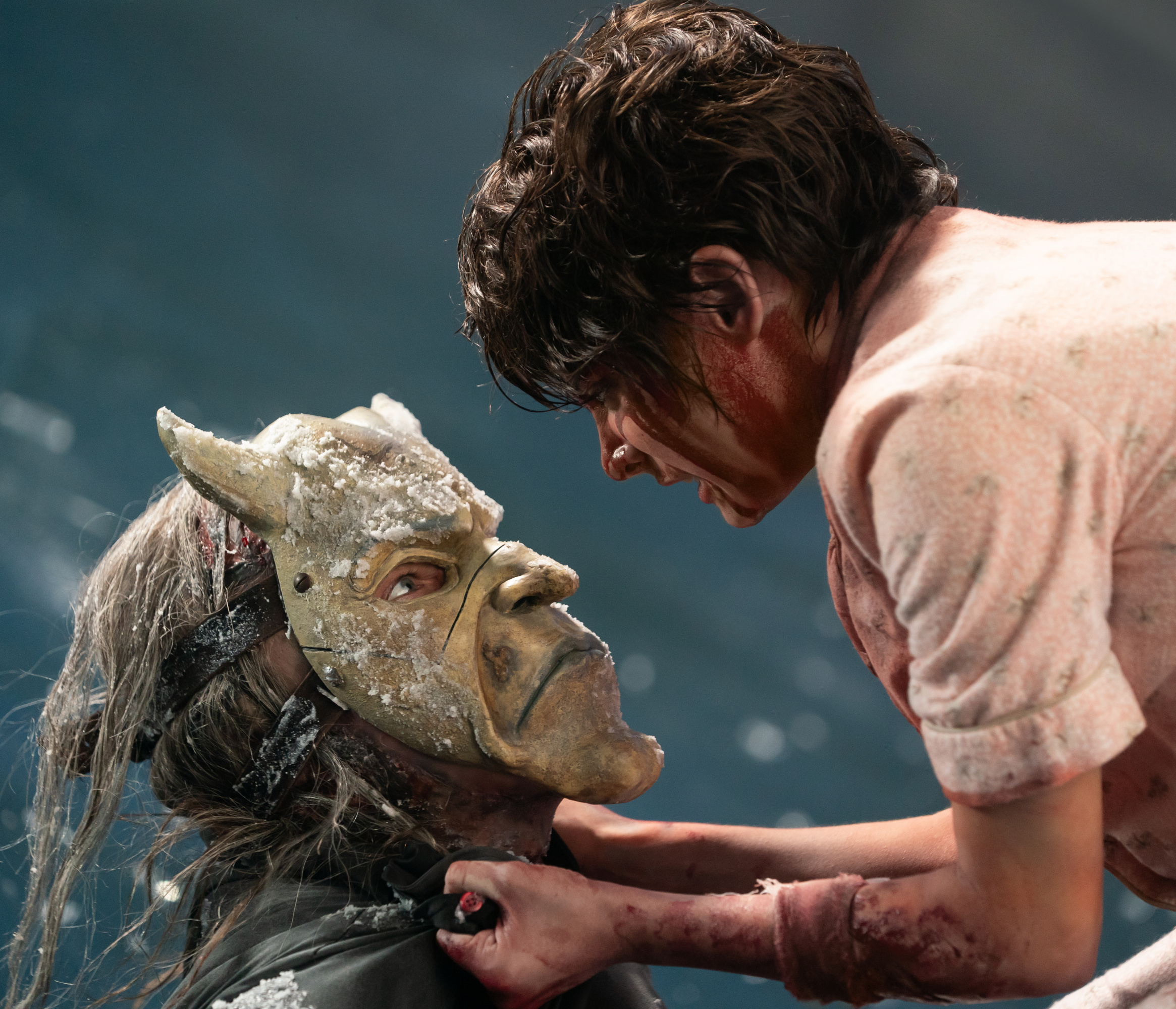Black Phone 2
Black Phone 2
VERDICT: Horror sequel feels fresh and exciting before giving way to tired tropes, turning Ethan Hawke’s chilling villain into a copy of a copy of Freddy Krueger.
For its first two-thirds or so, Black Phone 2 accomplishes a rare feat for sequels — it’s got fresh ideas, bold visuals, and resonant performances from its returning cast members as well as the new faces. But once it turns the first movie’s chilling villain, the Grabber (played indelibly by Ethan Hawke), into a rehashed Freddy Krueger, the thrill is very much gone.
But wait, you may be asking: didn’t the Grabber die at the end of the first movie, at the hand of final boy Finn (Mason Thames, 2025’s How to Train Your Dragon)? He certainly did, but as Krueger, Michael Myers, and any number of other big-screen boogeymen have taught us over the years, shuffling off the mortal coil means nothing when there’s a franchise to be built.
Returning screenwriters Scott Derrickson (who once again directs) and C. Robert Cargill start, at least, with a good idea: it’s 1982, four years after the events of The Black Phone, and while Finn self-medicates his trauma with weed, his psychically-gifted younger sister Gwen (Madeleine McGraw) begins having visions of three murdered young boys at the bottom of a frozen lake. She realizes that the lake is part of a mountain camp where her and Finn’s late mother, who also experienced prophetic dreams, once worked as a counselor. Joined by Finn and Ernesto (Miguel Mora), who has a barely-disguised crush on Gwen, the trio goes to the camp as counselors-in-training to do some investigating. (In The Black Phone, Mora played Ernesto’s older brother Robin, a friend of Finn’s who became a victim of the Grabber.)
The trio arrives in a blizzard, and camp owner Mando (Demián Bichir) — an ex-convict and former counselor himself — tells the kids they’re stuck there until the storm clears. But as Gwen’s dreams get more specific and more horrifying, she’s able to piece together the camp’s tragic history and how it dovetails with both the loss of her mother and the Grabber’s sinister career as a serial killer.
That’s all well and good, and the triumvirate of McGraw, Thames, and Mora — who all had career breakthroughs thanks to the first movie — continue to craft rich and complex teenage characters who are called upon to do more than the genre’s usual running and screaming. Cinematographer Pär M. Ekberg gives Gwen’s dreams something like a grindhouse filter: the colors become less saturated, the focus less sharp, and there are even audio pops and abrupt edits. The effect gives her nightmares an excitingly off-putting quality, and these moments rank among the highlights of Black Phone 2.
Unfortunately, those dreams are also the conduit to bring the Grabber back into the action, which is effective until it isn’t. At some point, any clear boundaries regarding the villain’s powers in the dream world versus the real world get muddied, and the haunting psychological thrills give way to slasher hi-jinks that wouldn’t pass muster in a later, lesser Nightmare on Elm Street entry.
Hawke remains delightfully disturbing, however, and some fans of the original may find the character’s return worthwhile, even if Black Phone 2 twists itself into narrative knots to make it happen. An effective sequel could have focused on the Grabber or on its compelling teen characters, but both calls coming from inside the house serves only to tie up the lines.
Director: Scott Derrickson
Screenwriter: Scott Derrickson and C. Robert Cargill, based on the short story by Joe Hill
Cast: Mason Thames, Madeleine McGraw, Jeremy Davies, Demián Bichir, Ethan Hawke
Producers: Jason Blum, Scott Derrickson, C. Robert Cargill
Executive producers: Ryan Turek, Adam Hendricks, Daniel Bekerman, Jason Blumenfeld
Cinematographer: Pär M. Ekberg
Production design: Patti Podesta
Editing: Louise Ford
Music: Atticus Derrickson
Sound design: Grant Elder, Luciano Vignola, re-recording mixers
Production companies: Universal Pictures, Blumhouse, Crooked Highway
In English
114 minutes

